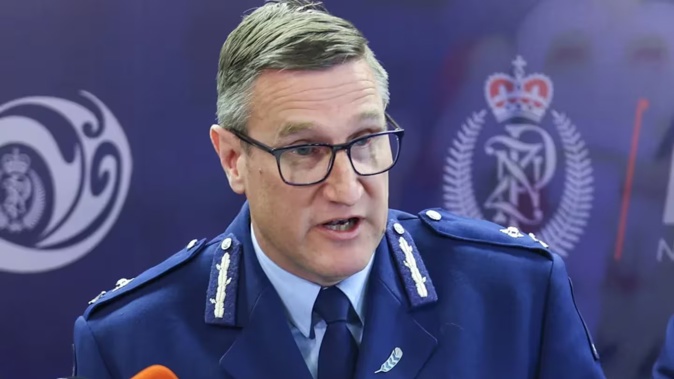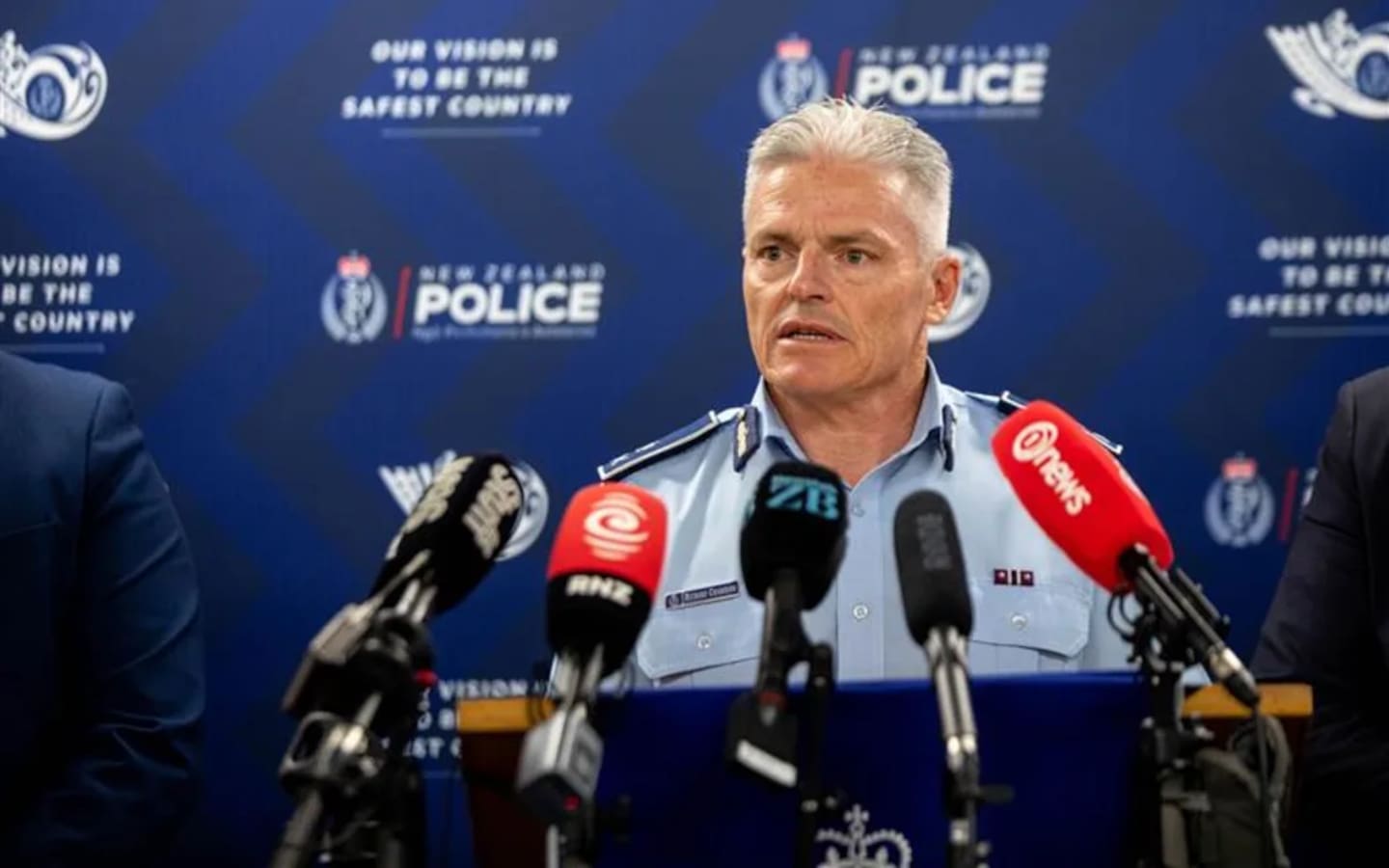
By Sam Sherwood of RNZ
Police have reversed changes former Deputy Police Commissioner Jevon McSkimming instructed staff to make to the firearms vetting process.
It was revealed that McSkimming instructed the changes be made after he was contacted by an acquaintance who told him they would lose their firearms licence if they got any further driving demerit points.
Police Commissioner Richard Chambers said he was of the view “better judgment could have been exercised and a more robust process followed” by McSkimming.
The Te Tari Pūreke Firearms Safety Authority then confirmed it was considering reversing the changes.
On Monday, Firearms Safety Authority director of business transformation Superintendent Richard Wilson confirmed the policy had been reviewed and an updated policy was now in effect.
“It clarifies the way the firearms regulator Te Tari Pūreke-Firearms Safety Authority takes account of driving incidents when making assessments of a person’s fit and proper status to hold a firearms licence,” Wilson said.
“The updated policy restores the previous position and reinforces safeguards, to ensure that data held by police continues to be used appropriately. Revised operational guidance for Authority staff is now in place.”
The authority concluded that a modification to the previous policy made in September last year was “based on a misunderstanding”.
“It was based on a mistaken belief that firearms staff were wrongly using NZTA data, when in fact they were using police data from the Police Infringement Processing System.
“The underlying principles of making an assessment of fit and proper status did not change and remain in place. Decisions must be logical, evidence-based, impartial, robust and able to withstand judicial review, proportionate to risk, and consistent with the law.”
The Arms Act enabled decision makers to take account of any information they consider relevant, which can include any offending or infringements, including driving incidents and driver’s licence suspensions, Wilson said.
The final consideration in the fit and proper assessment required a review of the totality of the specific behaviour or offending by the licence holder, in the context of the purposes and principles of the law, in order to reach a fair and justifiable decision.
Wilson said police had reviewed the individual case regarding McSkimming’s acquaintance and said the change did not impact their case.
“The outcome would have been the same, both pre policy and post policy change.”
Police said traffic-related offending could be relevant to fit and proper assessments, especially where there has also been an escalation of criminality, non-compliance, or risk of harm to personal or public safety over a prolonged period.
“This information is available in the police database NIA, which is the principal source of police information used by firearms vetting staff. It includes offending that has led to infringement fines and suspensions, as well as charges and convictions.
“The safeguards in the updated policy included explicit guidance to staff that emphasises that decisions must follow long-standing compliance principles. These require decisions to be logical, evidence-based, impartial, robust and able to withstand judicial review, proportionate to risk, and consistent with the law.”
RNZ earlier revealed McSkimming received an email from an acquaintance on August 14 last year, saying they were advised their firearms licence would be revoked, if they got any more driving demerit points.
The following day, a directive was drafted by staff in the Firearms Safety Authority team about the use of Police Infringement Bureau (PIB) data. The bureau deals with traffic offences, like speeding, not wearing a seatbelt or using a mobile phone while driving.
“With immediate effect there is to be no use of PIB information in relation to infringements for consideration of suspension/refusal/revocation of firearms licences or endorsements.”
The data from PIB was provided to police for Land Transport Act purposes, not for Arms Act matters, the email said.
“Whilst we all may have a view on this the direction regarding the use of PIBS, this direction is sanctioned by ELT [executive leadership team] and therefore non-negotiable.”
Changes were also made to the Police Manual Chapter, reflecting that PIB data should not be used by Firearms Safety Authority staff.
Responding to questions from RNZ, Chambers earlier said he became aware of the matters in May.
He was not involved in the executive at the time the change was made and said there was “no clear record of discussions and decisions on this”.
“As statutory Deputy Commissioner, Mr McSkimming did have the authority to instruct such a change. However, based on the information available, I am of the view better judgment could have been exercised and a more robust process followed,” he said.
“I believe it is warranted the Firearms Safety Authority review the policy, as it has opted to do.”

Police Commissioner Richard Chambers became aware of the matters in May. Photo / RNZ, Mark Papalii
RNZ earlier revealed McSkimming was investigated over allegations he acted inappropriately in relation to the firearms licences vetting process.
The investigation found he had the appropriate delegation to instruct the changes, both as executive lead for the work of the Te Tari Pūreke Firearms Safety Authority and as the Deputy Commissioner of Police.
RNZ approached McSkimming for comment through his lawyer last month, but did not receive a response.
In May, through his lawyer, McSkimming said he strongly denied any allegations he acted “in any way inappropriately in relation to the vetting process for firearms licences”.
“As the overall operational lead on firearms, at one time Mr McSkimming raised issues about how the vetting process was being applied.
“He took those concerns to the Executive Leadership Team and, following discussion at the ELT, the process was subsequently modified.”
The email
McSkimming’s acquaintance, a firearms licence holder, said in the email they had “never been in trouble with police criminally”, but had driver licence demerit suspensions against their name.
“I have been put on notice that next I get disqualified [redacted] I will have my firearms licence revoked, under not fit and proper,” they said.
The person said they originally did not get their firearms licence, because they had driving suspensions. They then went to a police station, contested the decision and had it overturned.
“I then got an E Cat which I held till laws changed and more recently a 10 year renewal. But also few more suspensions for driving as well [sic].”
The person said someone else connected to them was a firearms licence holder and that they “get punished”, because once the person had their licence taken, they could not have firearms in the house.
“I don’t believe it to be fair to revoke one licence because I got disqualified on another. And clearly neither do the courts.”
The person said they were “extremely big on gun safety”.
“Is there anyone you can speak to, or put me on to someone to speak to. To try and stop what is more than likely a waste of police time, my time, the cost, and saving me having police turning up to my house removing guns [redacted].”
Just over half an hour after the email was sent, McSkimming forwarded it to then-Director of Operations at the Firearms Safety Authority Richard Wilson.
McSkimming asked for his thoughts, indicating he found it hard to believe police took the approach outlined by the acquaintance.
The following morning, McSkimming emailed another person, whose name was redacted, forwarding them the email he received and said he would speak to them.
The same day, the directive was drafted by staff in the Firearms Safety Authority team.
- RNZ
Take your Radio, Podcasts and Music with you









